
Anurag Banerjee
Founder and Managing Trustee, Overman Foundation.
Born on 13th October 1984 to Jayanta Banerji and Sanghamitra Banerjee, eminent film actress of Bengali Cinema, Anurag received his early education from The Future Foundation School, Kolkata. His association with the Sri Aurobindo Ashram started from 1999 when, as a young boy of fifteen, he visited Pondicherry. A B.Com graduate from Calcutta University with Honours in Accountancy and Finance, he obtained a diploma in Business Administration which was followed by another diploma in Business Management and an M.B.A. degree from ICFAI University, Dehradun, with specialization in Human Resource Management.
At the age of twenty, Anurag penned a biography of Dilip Kumar Roy titled Achinpather Dibyapathik (thus he became the youngest Indian to pen a biography) and at the age of twenty-one he translated one hundred poems of Sri Aurobindo into Bengali titled Debotar Shrom; both the books were published in 2008. His first book in English, Nirodbaran: The Surrealist’s Journey, was published in December 2006 when he was twenty-two years old. In the past few years, he has established himself as a poet, essayist, researcher, biographer and translator. He was an Associate Professor at NexGen Institute of Business and Technology, Kolkata. He was also a faculty at Sri Aurobindo Centre for Advanced Research (SACAR), Pondicherry, where he conducted the course on Integral Management developed by him. He has lectured in several national symposiums and seminars organized by Sri Aurobindo Centre for Advanced Research, Sri Aurobindo Bhavan (Kolkata), National Council of Education and Jadavpur University. He is a Trustee of Sri Aurobindo Sakti Centre Trust which runs the “Sri Aurobindo Bal Mandir” School at New Alipore, Kolkata. He was also the President of the Working Committee of “Sri Aurobindo Bal Mandir” from 2017 to 2020. From August 2021, he is editing ‘Srinvantu’, the bi-annual journal in English which has been spreading the message of Sri Aurobindo and the Mother since 1953.
At the age of twenty-five on 29 March 2010, Anurag established Overman Foundation, a non-profit organization which runs India’s leading research institute dedicated to the ideals of Sri Aurobindo and the Mother.
Overman Foundation has published the following books penned and edited by Anurag: The Alipore Bomb Trial Judgment (2010), Sri Aurobindo: His Political Life and Activities (2010), Sri Aurobindo on Ethics (2011), Ananya Nishikanto (2011), Sujata Nahar: Loving Homage (2011), Sri Aurobindo and Rabindranath Tagore (2011), The Mother: The Birth and Growth of a Flame (2012), The Alipore Bomb Trial: Selected Documents (2012), Sri Aurobindo’s Integral Vision of Life (2012) and Sri Aurobindo As We Saw Him (2013).
In April 2011 Anurag was felicitated with the ‘Nolini Kanta Gupta Smriti Puraskar’ by ‘Srinvantu’ and Sri Aurobindo Bhavan, Kolkata. In August 2015 he was awarded the ‘Apurva Pal Smriti Puraskar’ (Sri Aurobindo Puraskar) by Chandernagore Barasat Gate Cultural Association.
Board Members of Overman Foundation
Late Nirmal Singh Nahar
A journalist and freedom fighter, son of Prithwi Singh Nahar—a noted sadhak, poet, litterateur, disciple of Sri Aurobindo and the Mother—and mother Suhag Kumari; grandson of Puran Chand Nahar—a noted Indologist, scion of the well-known Zamindar family of Nahars of Azimgunj, Murshidabad, West Bengal— Nirmal Singh Nahar belonged to the Swetambar Murtipujak Oswal Jain sect.
Born on the 28th of July 1922 at Kolkata, educated at Santiniketan from 1929 to 1935 during Rabindranath Tagore’s golden period, Nirmal Singh did his schooling from South Suburban Branch School where he was initiated to the student movement. He raised the national flag in the school building and as a result he was transferred to South Suburban Main School. At the Main School, along with other students, he raised funds for flood relief work and handed over the same to the Congress President, Subhas Chandra Bose, in 1939.
During this period he was initiated to the freedom movement by Phani Majumdar—a Forward Block leader and Lieutenant of Subhas Chandra Bose who later became a minister under Sheikh Mujibur Rahman of Bangladesh.
After the disappearance of Subhas Chandra Bose, Nirmal Singh was directed by Phani Majumdar to go underground to avoid arrest. So he gave up his studies and left for their Zamindari Estate at Dinajpur. There he joined his uncle Bikram Singh Nahar and elder brother Dhir Singh Nahar in starting the Nahar Farm and was entrusted to look after their agricultural farm at Nijpara, Birgunj in Dinajpur district (now in Bangladesh), a remote village 18 miles away from the nearest railway station. He cleared the jungle and bush and started farming after reclaiming 60 acres of land.
In 1943 he started agricultural farming at Sri Aurobindo Ashram, Pondicherry under the guidance of the Mother.
He was the official referee of football and volleyball at Pondicherry, the capital of French India.
In 1947, Nirmal Singh joined Reuters Associated Press of India and Press Trust of India as their special correspondent. In 1951, he was declared a persona non grata by the French Indian government and a warrant of arrest was issued for exposing French misrule in India as a journalist, but he was smuggled out of Pondicherry by the then Indian Consul General. On returning to Kolkata he joined a Bengali daily, Jana Sevak, as its chief reporter. After leaving journalism he became a promoter of the Haldia Scooter Project in collaboration with an Italian firm, Armachie Harley-Davidson SPA, in 1964.
Nirmal Singh was an author and contributor of articles in Bengali and English journals on spirituality and economics. His first book Sri Aurobindo and His Birth Place was published in 1990. He also co-edited Sujata Nahar: Loving Homage with Anurag Banerjee.
Nirmal Singh was one of the founder members of Sri Aurobindo Society of West Bengal at Sri Aurobindo Bhavan in Kolkata, nominated by the State Government in 1972. He was also a member of West Bengal State Sri Aurobindo Birth Centenary Celebration Committee set up by West Bengal State Government in 1971. He was a member of the Governing Council of All India Sri Swetambar Murtipujak Jain Tirth Raksha Trust and Trustee of Murushidabad Sangh Nahar Family Trust. His other previous activities were:
Founder Trustee-cum-Secretary of Jain Swetambar Society, Madhupur, Shikharjee (Paresnath-Jharkhand).
President of the Insurance Underwriters’ Association of India and of General Insurance Agents Association of India.
Advisory Committee member of Jain Panchayati Temple Trust, Tullapatty, Kolkata.
Executive Committee member for several years of Murshidabad Sangha.
Assistant Secretary of Santiniketan Ashramik Sangh.
Assistant Secretary of Calcutta Art Society.
General Secretary “Maha Sangeet Sammelan,” Kolkata.
President, Indian Chamber of Consumers, Kolkata.
Executive Committee member of: French India Journalist Association, Calcutta Press Club, South Calcutta District Congress Committee.
Joint Convenor South Calcutta District Congress Conference.
Formed a co-operative society along with other Journalist Associates and published an evening Bengali daily, Sandhya, of which he was the Chairman.
Sectional President, Junior Chamber International during All-India Convention at Kolkata.
President, Zoological Garden Sramik Union, Kolkata.
Partner, Nistarani Match Factory.
Director of Utility Products Ltd.
Nirmal Singh Nahar passed away on 3 September 2012 at the age of ninety. He was a Board-Member of Overman Foundation since the inception of the organization in March 2010.
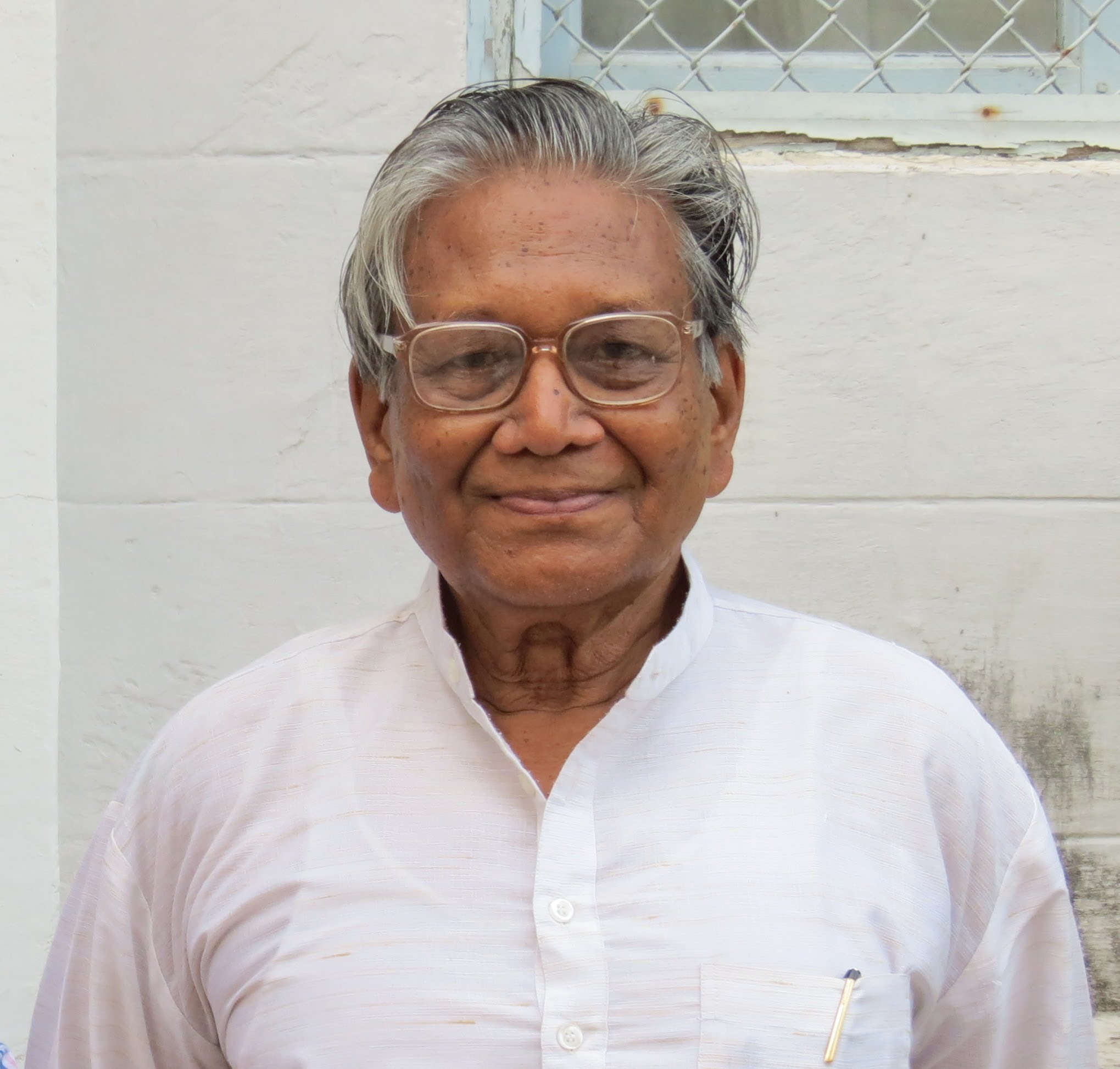
Late Manoj Das
Born on 27 February 1934 to Madhusudan Das and Kadambini Devi in Sankhari, a remote coastal village of Odisha, India, Manoj Das grew up amidst loving rural folks and Nature’s splendours but also had the horrific experience of a devastating cyclone followed by famine crushing his locality. At the age of eight he stood witness to his affluent home on the sea being plundered by savage gangs of bandits, not once but twice.
In town for study, writing came to him spontaneously and his first book in Odia, Satavdira Artanada, was published when he was fourteen. At fifteen he launched Diganta, which, in course of time, grew into a significant literary journal in the state. In search of some panacea for human suffering he became a revolutionary youth leader while in college, leading several agitations, courting jail, becoming unopposed President of the University Law College Union, General Secretary of the Students Federation and playing an active role in the Afro-Asian Students Conference at Bandung, Indonesia, in 1956.
His quest, however, led him to mysticism and, after serving as a lecturer in English at Cuttack for four years, he, along with his wife, Pratijna Devi, a scion of the Raj family of Kujang whose parents were renowned freedom fighters, joined the Sri Aurobindo Ashram at Pondicherry in 1963 which became their permanent abode.
Though outside his home state he was widely known as one of the best-loved and serious among the Indian writers writing in English, he was also probably the foremost successful bilingual writer in the country. He had been a regular columnist on literary and cultural themes for some of the major newspapers in India such as The Times of India, The Hindustan Times, The Hindu and major Odia dailies.
He was the editor of a prestigious monthly commanding an international circulation, The Heritage (1985-1989) published by the Chandamama Publications of Chennai and an author-consultant to the Ministry of Education, Government of Singapore (1981-1985), visiting the island nation twice a year for taking classes of a hundred teachers.
His research in the archives of London and Edinburgh in 1971 brought to light some of the significant glimpses of India’s struggle for freedom led by Sri Aurobindo in the first decade of the 20th century. He received the first Sri Aurobindo Puraskar for this pioneering work, offered by Sri Aurobindo Bhavan, Kolkata (the birth place of Sri Aurobindo), supported by the Government of West Bengal.
The numerous accolades he has received include India’s national award for creative writing—the Sahitya Akademi Award, the Odisha Sahitya Akademi Award (twice), the Sarala Award, the Sahitya Bharati Award (by now Odisha’s premier award that began with honouring him), the Bharatiya Bhasha Parishad (Kolkata) Award, The BAPASI (Booksellers and Publishers Association of South India) Award as the best writer in English in the South for the year 1998 and Rotary’s ‘For the Sake of Honour’. The Odisha Sahitya Akademi also bestowed on him its highest honour, the Atibadi Jagannath Das Samman.
He was the leader of the Indian Writers’ Delegation to China in 2000.
The President of India decorated him with the Padma Shri Award on the Republic Day, 2001. This was followed by India’s most prestigious award for literature, the Saraswati Samman. Utkal Sahitya Samaj, the hoary literary organization of his home state, Odisha, bestowed on him Utkal Ratna. While one university made him its honorary Professor Emeritus, the Utkal University of Culture chose him alone to be conferred with D.Litt. (Honoris Causa) in its very first convocation. That was followed by four other universities awarding him honorary D.Litt. including the oldest university of his home state, the Utkal University and his alma mater, the Ravenshaw University.
The Sahitya Akademi, our national academy of letters, has conferred on him its highest honour, Fellowship, which, according to its constitution, is “reserved for the immortals of literature”. Lately he received the NTR National Literary Award conferred by the NTR Vigyan Trust, Hyderabad, as an outstanding Indian writer in May 2013 and in October 2013 he was awarded the Amrita Keerti National Award by the Mata Amritanandamayi Trust, Amritapuri, Kerala, on the occasion of the 60th birth anniversary of renowned mystic and philanthropist. In 2014 he was bestowed with the Samman Puraskar by Lala Diwan Chand Trust, New Delhi. In January 2020, he was conferred with the ‘Padma Bhushan’ by the President of India.
He was recognized as a competent interpreter of India’s literary and spiritual heritage. Of the numerous talks he has given under schemes such as the UGC-sponsored Extension Lectures at different universities or literary, educational or spiritual fora in India and abroad, mention can be made of a few:
He was chosen to deliver the first UNESCO lecture organized by the Department of Education, Ministry of Human Resources Development, Government of India in 1998 at the National Museum Auditorium at New Delhi. He was invited to deliver the first Sri Aurobindo Memorial Lecture instituted by the National Council of Educational Research and Training (New Delhi) at the Calcutta University, Presidency College Auditorium in 2008. He was invited to deliver Sahitya Akademi’s prestigious annual oration, the Samvatsar Lecture, at the Rabindra Bhavan auditorium at New Delhi in 2009. He was chosen to preside over the inaugural function of the 20th World Book Fair at New Delhi in 2012. He is one of those living writers on whom maximum number of scholars has done their doctoral theses either in English or in Odia.
His major works in English include Selected Fiction of Manoj Das (Penguin), Chasing the Rainbow: Growing up in an Indian Village (Oxford University Press), A Tiger at Twilight and Cyclones, two novels clubbed together (Penguin), My Little India (National Book Trust) and The Bridge in the Moonlit Night and other Stories (National Book Trust). He is also one of the best-loved writers for children. While his Stories of Light and Delight, published in 1970, continues to be the largest selling story book for children in India till date, several other books for children like Books Forever, A Bride Inside a Casket, Legend of the Golden Valley, etc. are not lagging far behind.
Among his non-fictional works are a monograph on Sri Aurobindo published by the Sahitya Akademi on the 15th of August, 1972 and released in a function in New Delhi the same day by the then President of India, V.V. Giri in celebration of the Master’s Birth Centenary and Myths, Legends, Concepts and Literary Antiquities of India (Sahitya Akademi). His edited works include The Hour of God and other Selections from Sri Aurobindo (Sahitya Akademi) and Streams of Yogic and Mystic Experiences, a huge volume comprising treaties by about 40 scholars. This volume commissioned to him by Centre for Studies in Civilization, Ministry of Education, is much appreciated for the elaborate Introduction written by him.
Manoj Das was among those few living writers on whose life the Sahitya Akademi has produced a documentary film. About him, Ruskin Bond had once remarked, “There are only a few good story-tellers left in the world today and Manoj Das is one of them.” Dr. K. R. Srinivasa Iyengar had bracketed him in the art of short story with Rabindranath Tagore and Munshi Premchand.
Manoj Das passed away on Tuesday, 27 April 2021 at the age of eighty-seven. He was a Board-Member of Overman Foundation from 2017 to 2021.
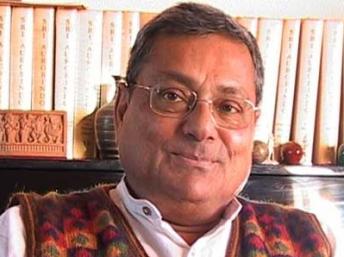 Dr. Prithwindra Mukherjee
Dr. Prithwindra Mukherjee
Born on 20th October 1936 to Tejendranath and Usha Mukherjee, Dr. Prithwindra Mukherjee is the grandson of the famous revolutionary Jatindranath Mukherjee alias Bagha Jatin. He came to Sri Aurobindo Ashram in 1948, studied and taught at Sri Aurobindo International Centre of Education. He was mentioned by the Sahitya Akademi manuals and anthologies as a poet before he attained the age of twenty. He has translated the works of French authors like Albert Camus, Saint-John Perse and René Char for Bengali readers, and eminent Bengali authors into French. He shifted to Paris with a French Government Scholarship in 1966. He defended a thesis on Sri Aurobindo at Sorbonne. He served as a lecturer in two Paris faculties, a producer on Indian culture and music for Radio France and was also a freelance journalist for the Indian and French press. His thesis for PhD which studied the pre-Gandhian phase of India’s struggle for freedom was supervised by Raymond Aron in Paris University. In 1977 he was invited by the National Archives of India as a guest of the Historical Records Commission. He presented a paper on ‘Jatindranath Mukherjee and the Indo-German Conspiracy’ and his contribution on this area has been recognized by eminent educationists. A number of his papers on this subject have been translated into major Indian languages. He went to the United States of America as a Fullbright scholar and discovered scores of files covering the Indian revolutionaries in the Wilson Papers. In 1981 he joined the French National Centre of Scientific Research. He was also a founder-member of the French Literary Translators’ Association. In 2003 he retired as a researcher in Human and Social Sciences Department of French National Centre of Scientific Research in Paris. A recipient of ‘Sri Aurobindo Puraskar’, in the same year he was invited by Berlin Philharmonic Orchestra for the world premiere of Correspondances, opus for voice and orchestra where the veteran composer Henri Dutilleux had set to music Prithwindra’s French poem on Shiva Nataraja, followed by texts by Solzhenitsyn, Rilke and Van Gogh. In 2009 he was appointed to the rank of chevalier (Knight) of the Order of Arts and Letters by the Minister of Culture of France. In June 2014, he received from the French Academy (Inscriptions et Belles-Lettres) the 2014 Hirayama Award for his long career as an author, especially for his French Thesis on the pre-Gandhian phase (1893-1918) of India’s freedom movement. On 1st January 2015, the Prime Minister of France appointed him Chevalier in the Ordre des Palmes Academques.
Dr. Prithwindra Mukherjee has penned books in English, Bengali and French and some of his published works include Samasamayiker Chokhe Sri Aurobindo, Pondicherryer Dinguli, Bagha Jatin, Sadhak-Biplobi Jatindranath, Undying Courage, Vishwer Chokhe Rabindranath, Thât/Mélakartâ : The Fundamental Scales in Indian Music of the North and the South (foreword by Pandit Ravi Shankar), Poèmes du Bangladesh, Serpent de flammes, Le sâmkhya, Les écrits bengalis de Sri Aurobindo, Chants bâuls, les Fous de l’Absolu, Anthologie de la poésie bengalie, In Quest of the Cosmic Soul and Les racines intellectuelles du movement d’independence de l’Inde (1893-1918) ending up with Sri Aurobindo, “the last of the Prophets”.
Prof. Kittu Reddy
Prof. Kittu Reddy was born in the Anantapur district of Andhra Pradesh on 1st July 1936 to Narayan and Meenakshi Reddy. He is the nephew of Neelam Sanjeeva Reddy, the former President of India. At the young age of five in 1941 he was brought to the Sri Aurobindo Ashram, Pondicherry, by his father who was an eminent member of the Swaraj party formed by Chittaranjan Das. He has lived there ever since.
He had all his education at the Sri Aurobindo International Centre of Education from where he graduated. He has been teaching at the same Centre since 1958. His subjects today are: The Foundations of Indian Culture, The Human Cycle, The Ideal of Human Unity (all books of Sri Aurobindo), Political Science, Social Science and History.
Since 1987, he has been giving talks to the Indian Army on Indian culture, the Mission of India and Motivation and Leadership.
In 1994, General BC Joshi, the then Chief of Army Staff, appointed him Adviser to the Army Welfare Education Society. Since then he has been in close touch with the Indian Army and has conducted workshops for the Indian Army, Indian Navy and the Indian Air Force. These workshops deal with Motivation, Leadership and the Indian nation. They have been held both in Pondicherry at the Sri Aurobindo Ashram and at training centres of the Armed Forces.
He is the author of the following books: A Vision of United India: Problems and Solutions, Kargil: A Manifestation of a Deeper Problem and The History of India: A New Approach. He is a Board-Member of Overman Foundation since the inception of the organization in March 2010.
Ms. Krishna Chakravarti
Born on 7th December 1943 to Justice Santosh K. Chakravarti and Bokul Rani, Krishna Chakravarti came to Sri Aurobindo Ashram, Pondicherry, in 1956 and was admitted in the Sri Aurobindo International Centre of Education. She completed her education in 1966 and joined the Central Office of the Ashram, the work being chosen by the Mother. An inmate of the Ashram since 1956, she is the author of Sri Aurobindo Loho Pronam and Judge Saheb O Maharanir One-Third Dozen er Kahini (in Bengali) and A Garland of Adoration (in English). She is a Board-Member of Overman Foundation since the inception of the organization in March 2010.
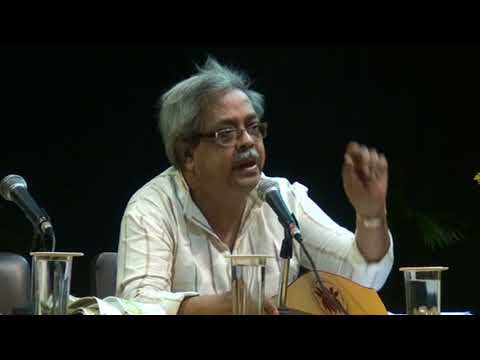
Late Prof. Supriyo Bhattacharya
Prof. Supriyo Bhattacharya was an Associate Professor in the Department of Economics at the University of Kalyani and had also served the department as its Head. He was on its teaching faculty since 1984. He was a former Guest-Lecturer in the Department of Post Graduation Business Studies in the Department of Commerce of the University of Calcutta for over two decades since 1981. He also served as a Lecturer in the Department of Economics at Belur Vidyamandir, Howrah. He was engaged in studies on Sri Aurobindo, Rabindranath Tagore and Shrimat Anirvan and had been connected with research work in various projects associated with Sri Aurobindo’s philosophy in Kolkata and at Sri Aurobindo Ashram, Pondicherry, gives talks and writes on different aspects of Sri Aurobindo’s vision. A recipient of the prestigious “Sri Aurobindo Puraskar” from Sri Aurobindo Bhavan, Kolkata, he was elected Fellow of the Royal Asiatic Society of Great Britain and Ireland in June 2007. He was the Editor of Srinvantu (a Bengali and English magazine devoted to the cause of propagation of the ideas of Sri Aurobindo and the Mother) and has a number of critically acclaimed publications to his credit. He passed away on Wednesday, 28 April 2021. He was a Board-Member of Overman Foundation from 2017 to 2021.
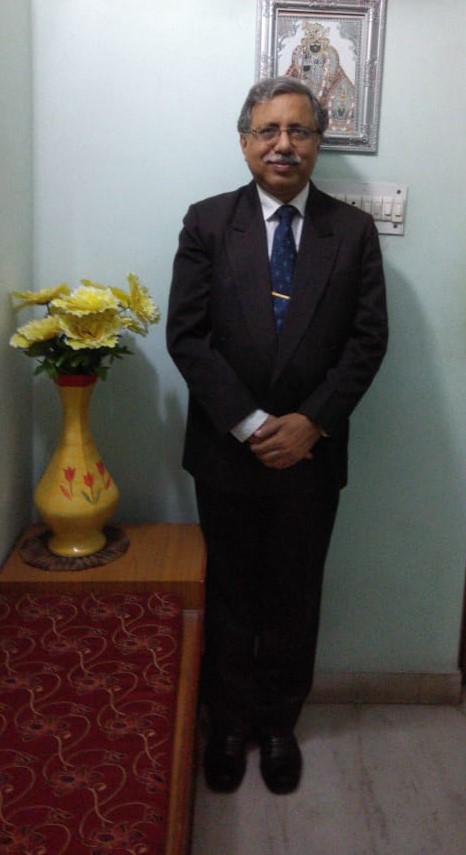
Sudipto Kumar Choudhury
Born on 22 February 1957, Sudipto Kumar Choudhury completed his school education from the St. Xavier’s School, Hazaribag (now in Jharkhand) in December 1974. He was awarded a Gold Medal for Best Influence for the year 1974; this was the most prestigious award given by St. Xavier’s School. He obtained his Bachelor of Arts degree with Honours in Economics from St. Xavier’s College, Kolkata, in 1978 and obtained his Master of Arts degree also in Economics from the University of Calcutta in 1980. He obtained his L.L.B. degree from the University of Nagpur in 1996 and Certified Associate of Indian Institute of Banks (C.A.I.I.B.) from the Indian Institute of Banking and Finance, Mumbai. He started his career as a Research Assistant with the National Institute of Public Finance and Policy, New Delhi, on Property Tax Reform in West Bengal in 1980. For about five months he worked as a Sub-Editor of The Statesman in 1982. In December 1982 he joined the Bank of Maharashtra as a Probationary Officer and served it as an Officer and Branch Manager managing several portfolios (including retail, corporate and forex) for twenty-one years. Having opted for voluntary retirement from Bank of Maharashtra in 2003, he joined Axis Bank. He started and headed the Bokaro Steel City branch of Axis Bank in Jharkhand in 2003. From 2007 to 2009, he was the Head of the Treasury Department at the main branch of Axis Bank in Kolkata. From 2009 to 2017 he was supervising the Internal Audit Department of Axis Bank conducting branch audits, compliance audits and forex audits. He retired as the Deputy Vice-President, Regional Audit Office (East)) of Axis Bank in February 2017. He is also the Trustee of Sri Aurobindo Sakti Centre Trust, New Alipore, Kolkata.
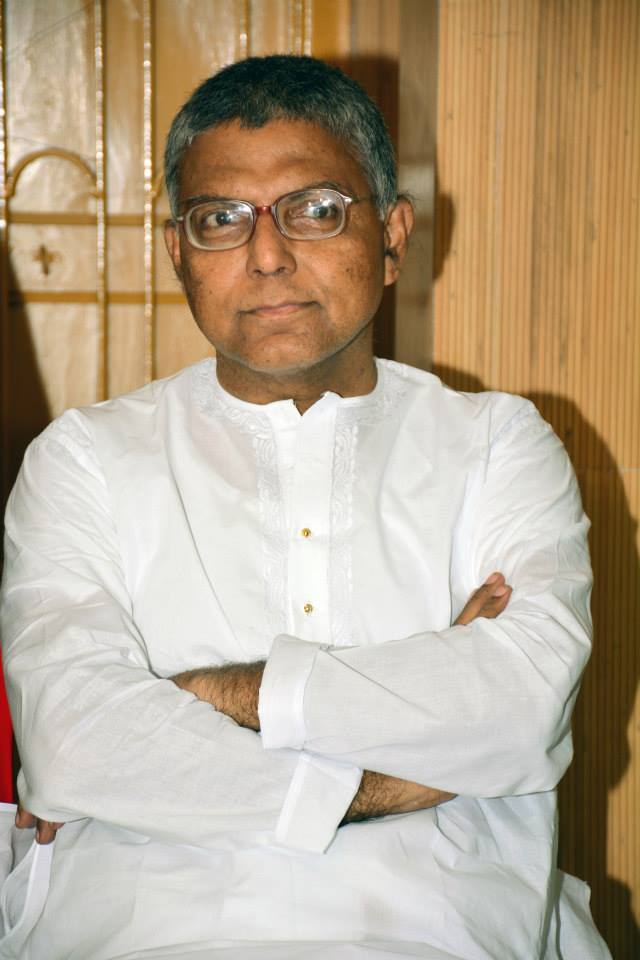
Goutam Banerji
An ardent devotee of Sri Aurobindo and the Mother and an extraordinary scholar with avid interests in philosophy, spirituality, literature, music, mysticism and photography, Goutam Banerji has served the banking sector for over thirty years. A noted speaker and one of the finest exponents of Aurobindonian philosophy in West Bengal, he has authored several articles in Bengali and English which have been published in journals of repute.
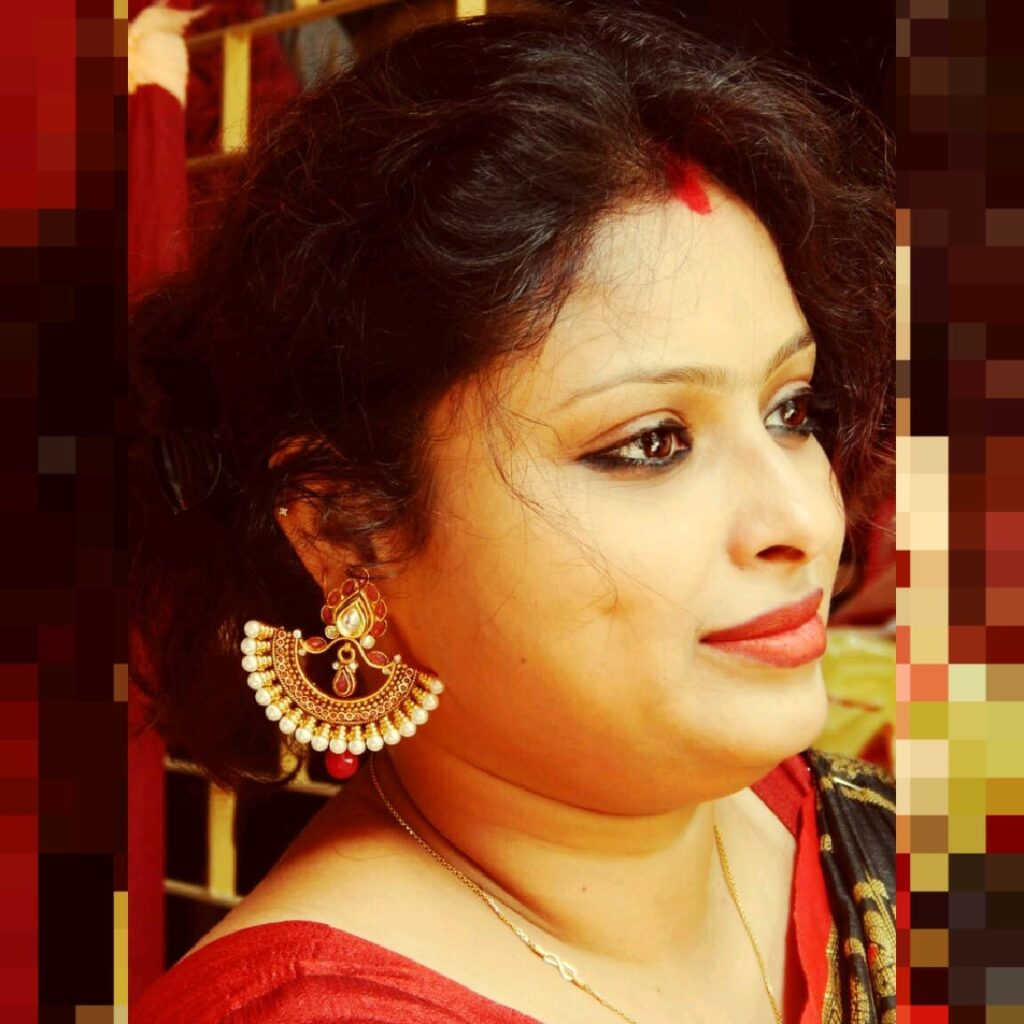
Sayanti Majumdar
Sayanti Majumdar obtained her Bachelor of Science degree with Honours in Geography from the Calcutta University in 2007 and her Master of Science degree in 2009 from Chhatrapati Shahuji University of Kanpur (Uttar Pradesh). She did her Master of Arts in Environmental Studies in 2013 from Rabindra Bharati University, West Bengal. She began her career as a teacher at the Children’s Paradise Nursery and Kindergarten School at Alipurduar and later served as a lecturer at Swami Abhedananda Mahavidyalaya of Sainthia, West Bengal. Her areas of interests include music and painting.
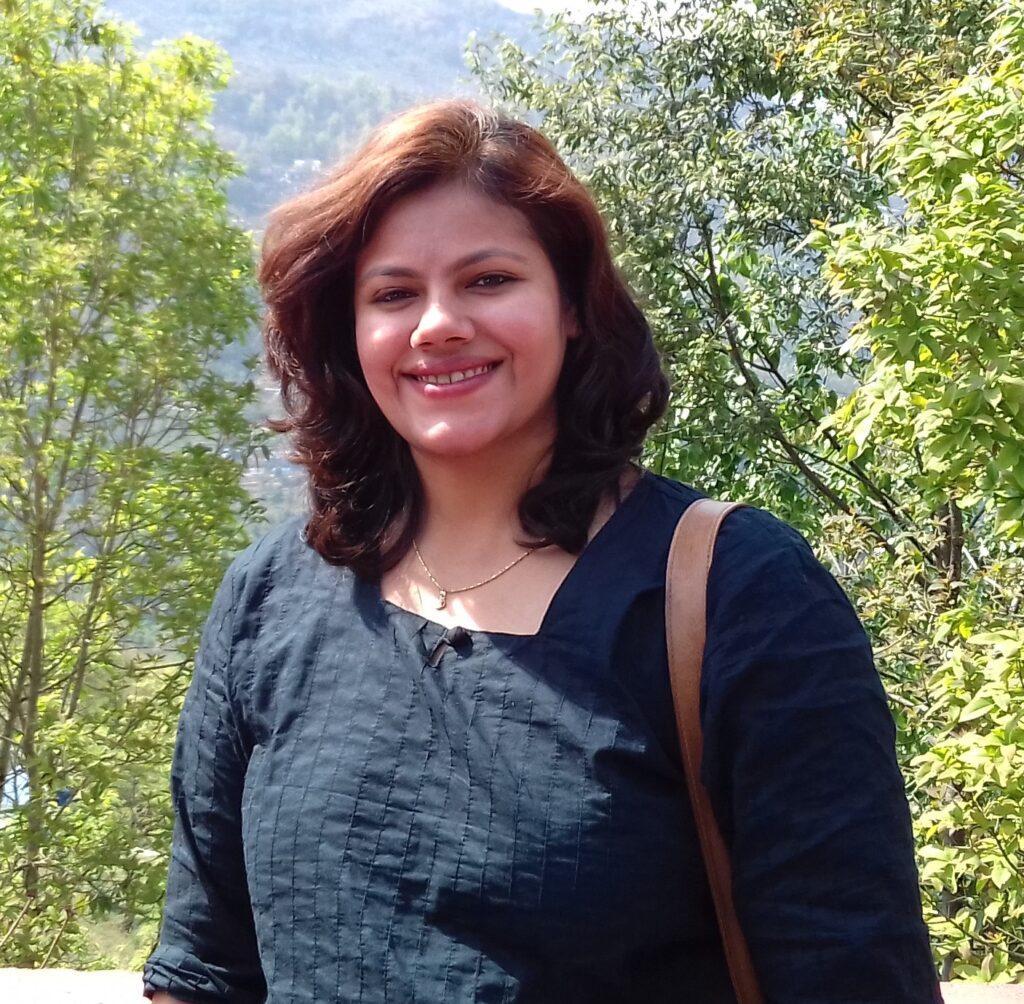
Shukla Sanyal
An accomplished violinist, Shukla Sanyal obtained her Bachelor of Arts, Master of Arts and Master of Philosophy degrees in Philosophy from the University of Calcutta respectively. A senior faculty of Philosophy at Narasinha Dutta College of Howrah, she has taught in various colleges and universities like Krishnanagar Government College, Chakdaha College and Diamond Harbour Women University. She did her Ph.D on Sri Aurobindo from the Jadavpur University; her theme of research being Rebirth in the Light of Sri Aurobindo’s Integral Monism.
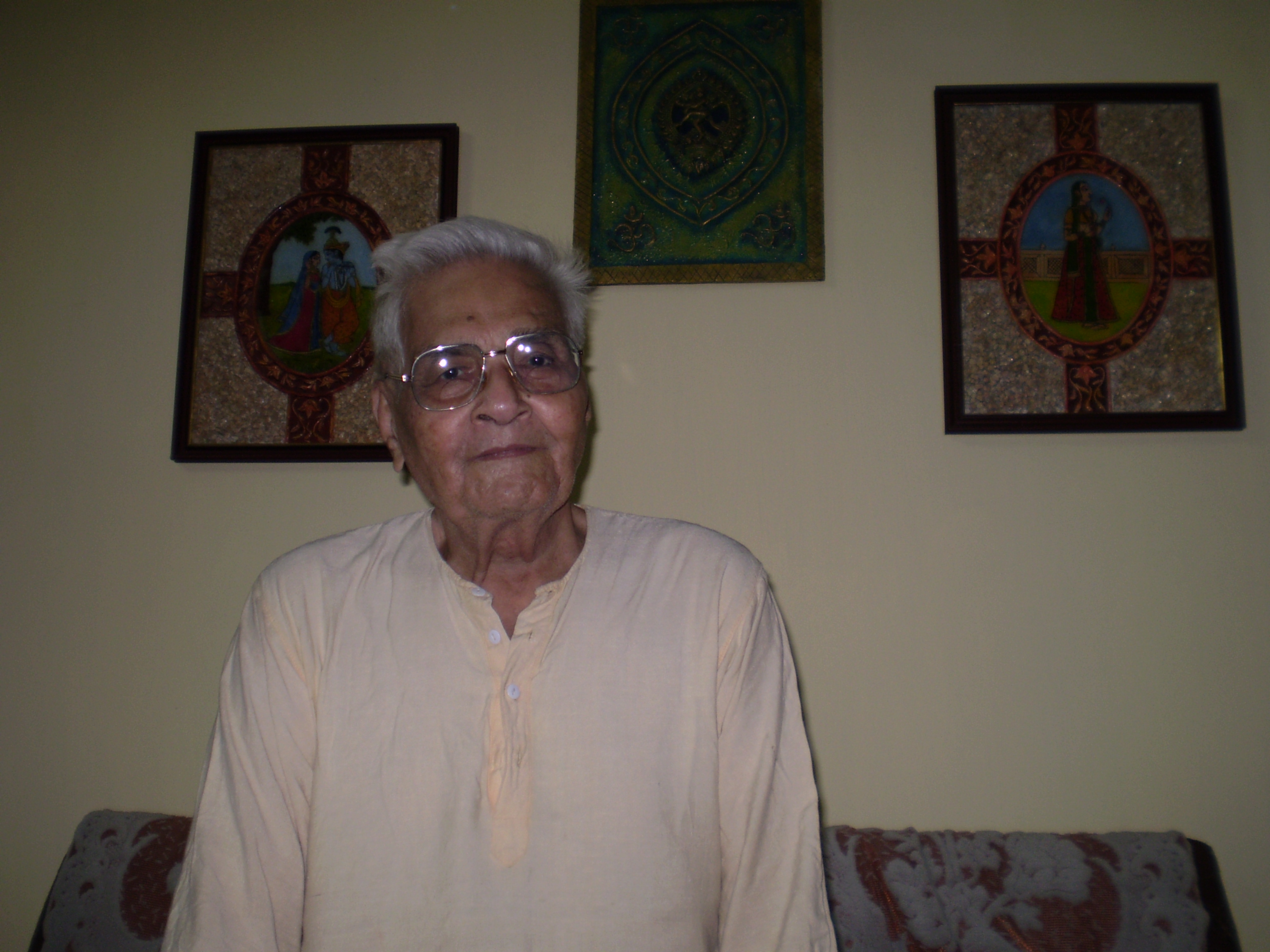
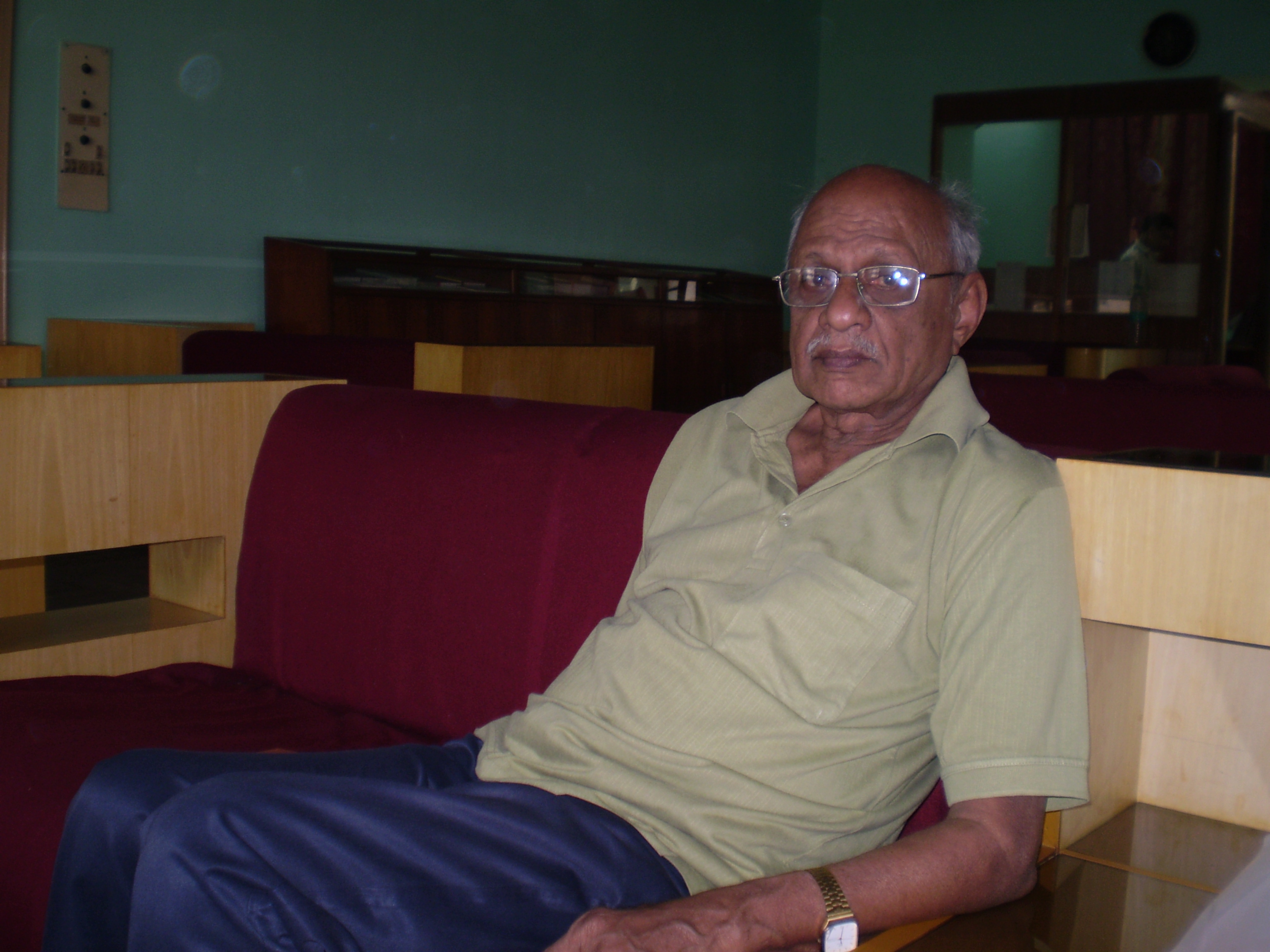
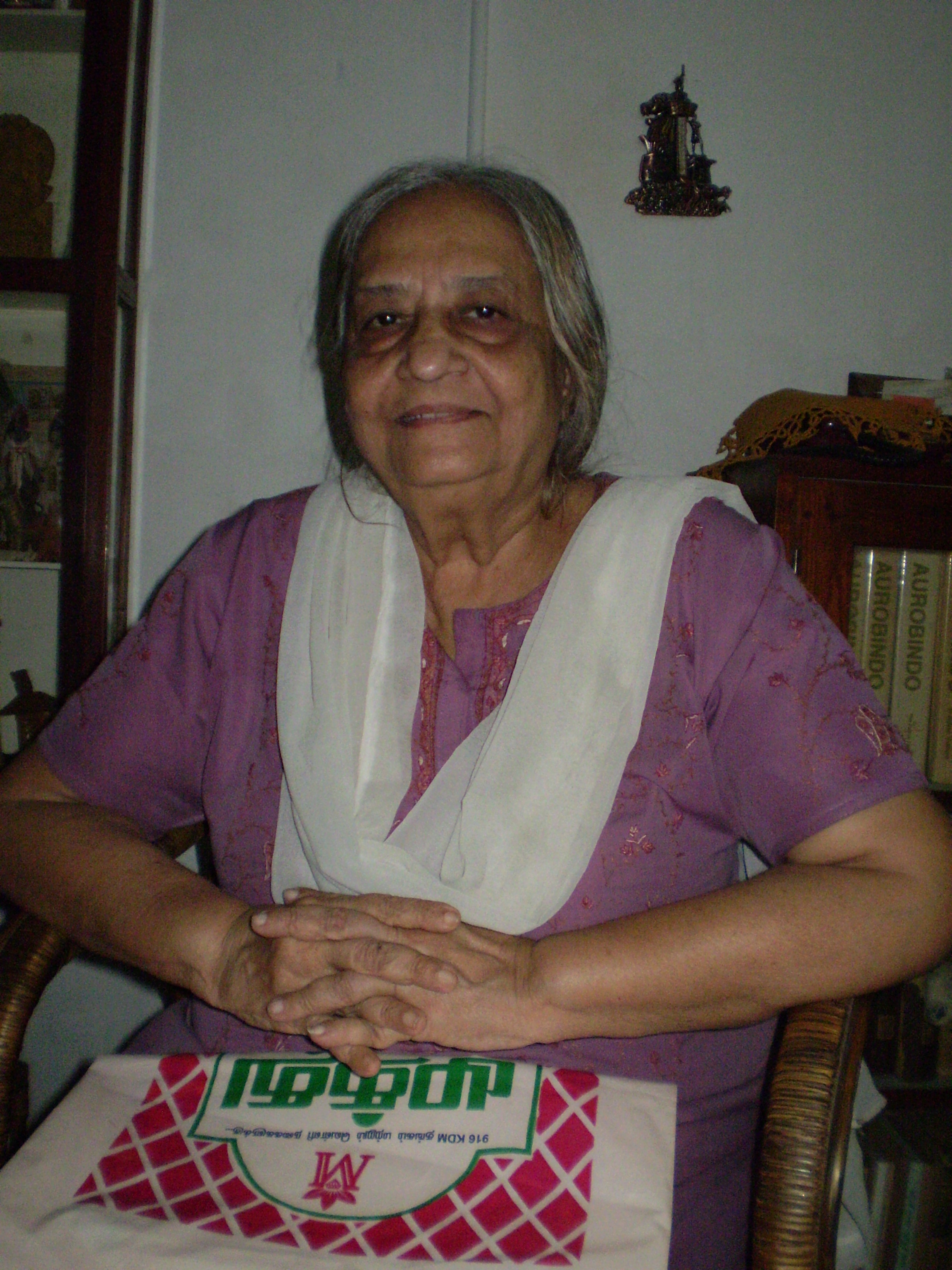
One Reply to “About Us”
Comments are closed.